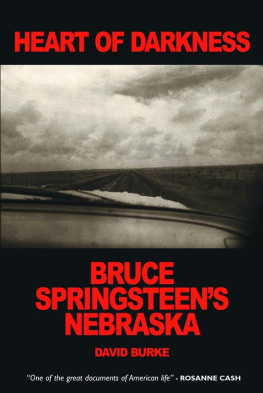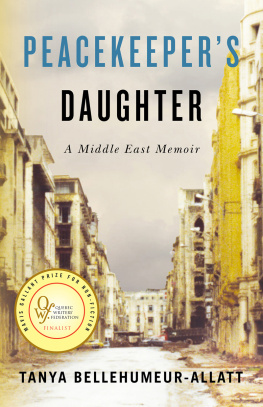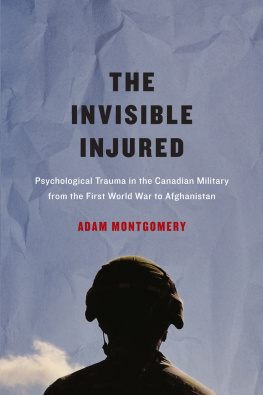Introduction
As I think back to my time in Germany, I cant help but feel that it had all gone by so quickly. The 1960s were drawing to a close and I was about to return to Canada. I would like to say I was looking forward to going back, but after five years in Germany, it actually felt like I was leaving home for a place I no longer knew.
It seemed that everything about my life had changed, in just the blink of an eye. When I left London in the mid sixties, I was a mere eighteen years old. The law may have considered me an adult, but in my mind I was still a kid, with hardly a care in the world. We were paid every two weeks, but I was usually broke within a day or two. My most valuable possession was a reel-to-reel tape player, which I had picked up second hand for forty bucks. All I had achieved during that first year in Germany was an increased tolerance toward the local beer. Everything I owned could fit neatly into a kit bag and a barrack box.
Now here I was, just five years later, and it would take a full two-and-half-ton-truck just to get all our belongings to the air terminal in Dsseldorf.
I could never put my finger on the exact moment it happened, but somewhere in those intervening years I had become an adult, with grown-up responsibilities. I had a wife, a two-year-old daughter, and a newborn son, all relying on me to do the right thing.
Our first year of marriage presented its own unique set of difficulties. Our tiny upstairs flat sat hidden away in a narrow alley, just a few hundred metres from the main railroad station, in downtown Soest. Most nights we would awake to the sound of a loud whistle, as yet another train prepared to leave the station. The owners of the house were a couple in their eighties and they lived right below us. The long winter months were particularly rough. Our apartment had no heat or hot water and our toilet was shared with the landlord downstairs. The two tiny rooms were nothing to look at, but it was all we could afford on a corporals pay.
The bedroom had enough space to hold a double bed and a crib for our baby girl. Later, when our son came along, we would have to jam another crib in the corner, next to the bedroom door.
Soon after dawn each morning, I would dress quickly and throw on a coat before heading to the kitchen to try to get the fire going in the big iron stove. Once I lit a match under the kindling wood and newspaper, all I could do was hop around on the cold linoleum floor while I waited for the flames to finally take hold. Next I could carefully add a few small pieces of coal and wait as the heat started to build. Soon I could open the kitchen door and let the heat find its way through to the bedroom. Once the kettle warmed up, I could fill the plastic basin to wash and shave before heading off to work.
Keeping the baby warm and dry was always a challenge, but somehow she seemed to thrive. Each morning I would tiptoe into the bedroom to say goodbye and there she would be, smiling up at me from beneath her triple layer of blankets.
Life had never been easy for my wife, Brigitte. She had been born during a time of great devastation.
The American bombers would come by day and the British by night. By the beginning of 1944, there was little left of the once picturesque town of Quedlinberg. The towns location near the Polish border made it a major rail hub for resupply trains moving toward the eastern front.
Each evening Brigittes mother would bundle up her seven children and move to the underground bunker to wait out the endless bombing raids. At first light the older boys would head for the farmers fields in search of food. On a good day they might be fortunate enough to dig up a few seed potatoes or even the occasional turnip.
By spring the skies grew quiet. There was nothing left to bomb. The town lay in ruins and the railroad tracks running east were little more than a series of massive craters and twisted steel. Now there was another terror to deal with.
At first there was only the sound of artillery in the distance, but soon the Russian Army was right on their doorstep. They paused only long enough to destroy anything that remained. Brigittes sister was barely twelve years old and would have to remain hidden in a closet, just waiting and hoping for the Russian troops to move on towards Berlin. She did manage to evade detection, but many women, both young and old, were not so fortunate.
The war may have ended in May, but the hardship continued. The family found themselves trapped deep inside the Russian sector and every day presented new dangers. Food was always scarce and the older children would often sneak in behind the army kitchen and sift through the garbage, looking for anything edible to take home to their mother.
Brigittes father had been captured on the Russian front, but after months in captivity he finally came home. His ordeal had left him only a shell of his former self. He died in the early 1950s.
One night, shortly before midnight, Brigittes mother shook her awake and told her to get dressed. She was just ten years old, but she knew the significance of the moment. All were busy dressing, but no one made a sound. Outside a truck waited to take them on the first leg of their journey. The house that had been in their family for generations would have to be abandoned. They could take only what each person could carry. When the sun rose the following morning the truck pulled over to the side of the road. They had managed to cover over eighty kilometres, but the road ahead was far too dangerous to drive any further. The rest of the journey would have to be done on foot. There was still over thirty-two kilometres to travel before they reached the safe zone.
















